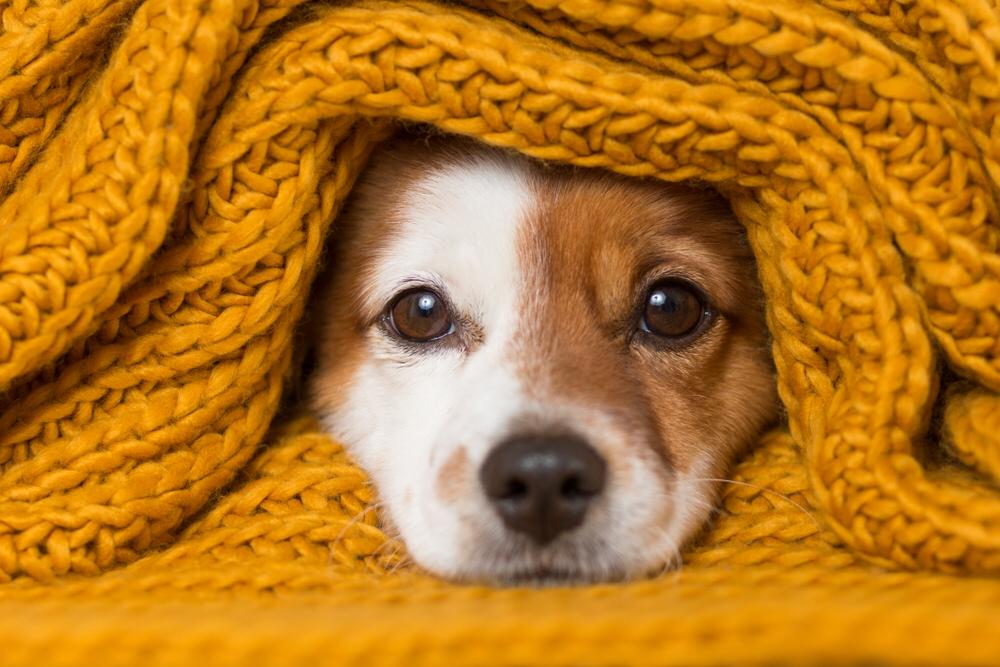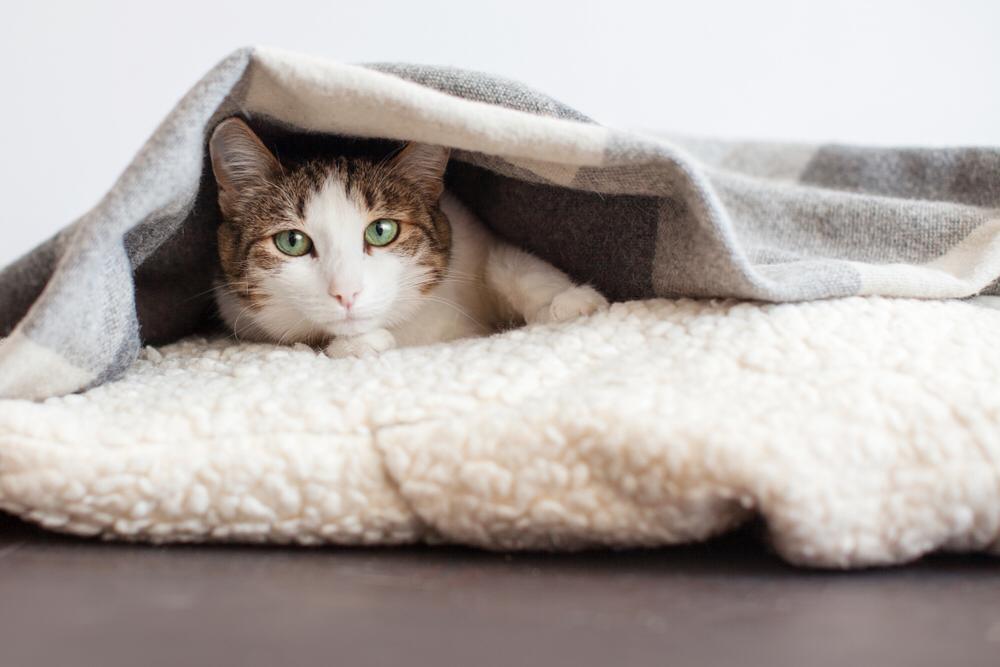Here's all that you need to know to keep your pet warm and comfy during the winter!
Sweater weather is here! Time to bring out the warm jumpers, cosy hoodies, and fleecy blankets to snuggle with your pet. Although your pet's fur is warm and soft, it is not always a good insulator in cold weather; if it's the damp kind of cold especially, all insulation abilities of an animal's fur coat are completely lost. Now one option to help your pet handle winters is to snuggle them 24/7 for three odd months until it gets warmer. Unfortunately, this is the kind of option you fondly fantasise about but can't do in reality because it gets in the way of other... life-related things.

There are definitely a few other things you can do however, to give your pet the warmth and comfort they need to keep the stinging cold at bay.
Prepping Your Pet's Space
If it gets REALLY cold where you live, avoid keeping your pet outdoors. If your pet is more accustomed to the warmth, they will need proper shelter from the cold. If your pet has its own space, ensure that it is in a warm, dry part of the house and that your pet has extra blankets.
Should You Dress Your Pet?
Depending on how cold it gets where you live, cold weather gear for your dog is a great idea, but you shouldn't let them be outdoors and dressed without supervision. If the clothes become damp, your dog could risk falling sick. Or say, they decide to fidget with the clothes or the clothes become stuck someplace — your dog could get injured.
Avoid dressing cats. They typically do not like it and are likely to struggle and become stressed out. However, ensuring their usual spots in the house are warm enough and ensuring the litter box is free of any cold drafts.
Pre and Post Walk Care
Just like our lips become chapped in winter and skin becomes dry, so does the skin of our pets. Paws often see the worst of this, because your pet may go for walks on cold ground with no protection for their feet.
To help your pet stay safe this winter, be sure to trim the hair between the paws, and use oatmeal-based shampoos and conditioners to relieve winter itchiness. Also, be sure to wipe paws dry after coming in from walks!
But What About Cats?
If your cat spends time both indoors and outdoors, try to keep them indoors during the cold season. It's easier said than done, we know, but try to set some boundaries well before the cold weather sets in to make things easier for both you and your cat.
If you have a cat or a community cat that you want to provide shelter for, it can be as easy as setting up a sturdy wooden or cardboard box outside your home with old blankets or inexpensive hay. Once that's done, all you need to do is change bedding regularly.
Is Your Pet Very Young or Old?
For young puppies and senior dogs in their sunset years, it's important to limit their time outside. Puppies, kittens and older dogs and cats should not be outside. This is because they do not have enough fat or metabolism to stay warm in plunging temperatures. If it's cold or wet out, keep your pet indoors, only limiting outside trips to short visits for bathroom breaks.
If the weather is truly awful and you can't take your pet outside, be sure to invest some time in training them to relieve themselves in a spot in the house that you are okay with. This could be the bathroom, or out in the balcony, or a designated corner in a room. Training pads are a great tool for this!
Check Your Car!
If you have outdoor cats that you care for in your neighbourhood, be sure to check under your car's hood before you start it. Bang on the hood of your car or trying honking to scare away any cats that may be looking for warmth near your car's engine.
If you live in an area with lots of stray animals, there is a higher chance of something like this occurring.
Dietary Needs in the Winter
Because of all the dryness that goes around in frigid temperatures, it's vital to ensure your pet has plenty of drinking water to stay hydrated.
More importantly, adjust their winter diet to provide them with more fat to stay warm during the cold season. This is because your pet will burn more calories in trying to keep warm and they need a few extra treats and that boost of fat in their diet to keep them warm.
Does Your Cat or Dog Even NEED Special Help?
If you have a breed of a cat or dog at home, do some homework and research about the care they need. Some dogs and cats need more or less help staying warm depending on their breed. So find out how your dog does in various temperatures before you start preparing for the cold!

We hope that armed with this information you and your pets will have an amazing winter filled with warm memories!